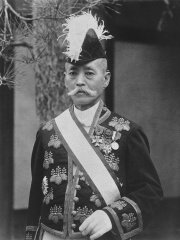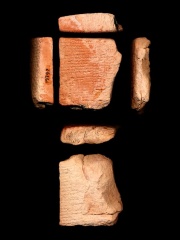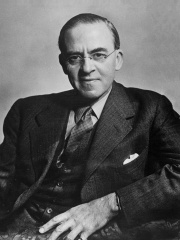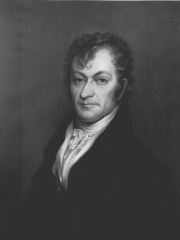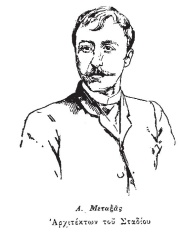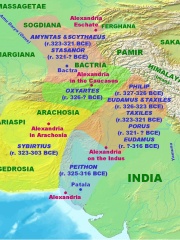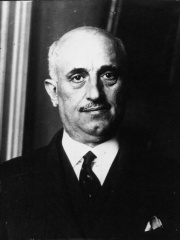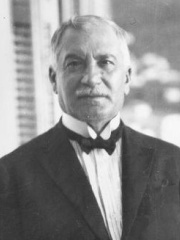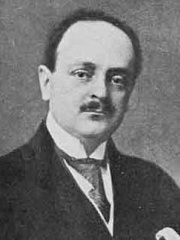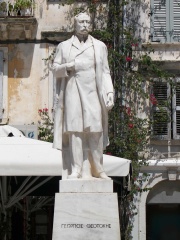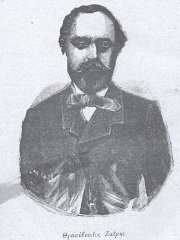Politician
Tlepolemus
EN.WIKIPEDIA PAGE VIEWS (PV)

 Tlepolemus
Tlepolemus
His biography is available in 19 different languages on Wikipedia. Tlepolemus is the 14,354th most popular politician (down from 13,086th in 2024), the 714th most popular biography from Greece (down from 662nd in 2019) and the 319th most popular Greek Politician.
Memorability Metrics
Page views of Tlepolemus by language
Among Politicians
Among politicians, Tlepolemus ranks 14,352 out of 19,576. Before him are Yukio Ozaki, Malcolm Turnbull, Sultan Ali Keshtmand, and Rula Ghani. After him are Vasyl Durdynets, Princess Louise Charlotte of Saxe-Altenburg, Svyatoslav Fyodorov, Damiq-ilishu, Stafford Cripps, Primo Nebiolo, Arechis I of Benevento, and Edward Livingston.
Most Popular Politicians in Wikipedia
Go to all RankingsYukio Ozaki
1858 - 1954
HPI: 56.69
Rank: 14,354
Malcolm Turnbull
1954 - Present
HPI: 56.69
Rank: 14,355
Sultan Ali Keshtmand
1935 - Present
HPI: 56.69
Rank: 14,356
Rula Ghani
1948 - Present
HPI: 56.68
Rank: 14,357
Tlepolemus
HPI: 56.68
Rank: 14,358
Vasyl Durdynets
1937 - Present
HPI: 56.68
Rank: 14,359
Princess Louise Charlotte of Saxe-Altenburg
1873 - 1953
HPI: 56.68
Rank: 14,360
Svyatoslav Fyodorov
1927 - 2000
HPI: 56.68
Rank: 14,361
Damiq-ilishu
1900 BC - 1800 BC
HPI: 56.68
Rank: 14,362
Stafford Cripps
1889 - 1952
HPI: 56.68
Rank: 14,363
Primo Nebiolo
1923 - 1999
HPI: 56.68
Rank: 14,364
Arechis I of Benevento
600 - 641
HPI: 56.68
Rank: 14,365
Edward Livingston
1764 - 1836
HPI: 56.68
Rank: 14,366
In Greece
Among people born in Greece, Tlepolemus ranks 714 out of NaN. Before him are Amythaon (null), Stamatios Nikolopoulos (1900), Anastasios Metaxas (1862), Sibyrtius (-400), Nikos Anastopoulos (1958), and Alexandros Papanastasiou (1876). After him are Sotades (-400), Panagiotis Paraskevopoulos (1875), Paul I of Constantinople (null), Ioannis Chrysafis (1873), Dimitri Kitsikis (1935), and Kostas Karyotakis (1896).
Others born in Greece
Go to all RankingsAmythaon
POLITICIAN
HPI: 56.94
Rank: 708
Stamatios Nikolopoulos
POLITICIAN
1900 - 1910
HPI: 56.93
Rank: 709
Anastasios Metaxas
ARCHITECT
1862 - 1937
HPI: 56.90
Rank: 710
Sibyrtius
POLITICIAN
400 BC - 360 BC
HPI: 56.84
Rank: 711
Nikos Anastopoulos
SOCCER PLAYER
1958 - Present
HPI: 56.73
Rank: 712
Alexandros Papanastasiou
POLITICIAN
1876 - 1936
HPI: 56.72
Rank: 713
Tlepolemus
POLITICIAN
HPI: 56.68
Rank: 714
Sotades
WRITER
400 BC - 300 BC
HPI: 56.60
Rank: 715
Panagiotis Paraskevopoulos
ATHLETE
1875 - 1956
HPI: 56.59
Rank: 716
Paul I of Constantinople
RELIGIOUS FIGURE
HPI: 56.57
Rank: 717
Ioannis Chrysafis
WRITER
1873 - 1932
HPI: 56.57
Rank: 718
Dimitri Kitsikis
PHILOSOPHER
1935 - 2021
HPI: 56.56
Rank: 719
Kostas Karyotakis
WRITER
1896 - 1928
HPI: 56.54
Rank: 720
Among Politicians In Greece
Among politicians born in Greece, Tlepolemus ranks 319. Before him are Eurymedon (-450), Themistoklis Sofoulis (1860), Amythaon (null), Stamatios Nikolopoulos (1900), Sibyrtius (-400), and Alexandros Papanastasiou (1876). After him are Alexandros Diomidis (1875), Georgios Theotokis (1844), Thrasyvoulos Zaimis (1822), Spyridon Lambros (1851), Eva Kaili (1978), and Evangelos Venizelos (1957).
Eurymedon
450 BC - 413 BC
HPI: 57.03
Rank: 313
Themistoklis Sofoulis
1860 - 1949
HPI: 57.00
Rank: 314
Amythaon
HPI: 56.94
Rank: 315
Stamatios Nikolopoulos
1900 - 1910
HPI: 56.93
Rank: 316
Sibyrtius
400 BC - 360 BC
HPI: 56.84
Rank: 317
Alexandros Papanastasiou
1876 - 1936
HPI: 56.72
Rank: 318
Tlepolemus
HPI: 56.68
Rank: 319
Alexandros Diomidis
1875 - 1950
HPI: 56.44
Rank: 320
Georgios Theotokis
1844 - 1916
HPI: 56.38
Rank: 321
Thrasyvoulos Zaimis
1822 - 1880
HPI: 56.36
Rank: 322
Spyridon Lambros
1851 - 1919
HPI: 55.96
Rank: 323
Eva Kaili
1978 - Present
HPI: 55.75
Rank: 324
Evangelos Venizelos
1957 - Present
HPI: 55.67
Rank: 325
